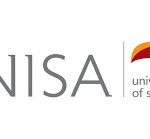If you're a Ghanaian student who has completed your studies in Ghana and is considering…
The Cheapest Place to Study Abroad: A Step-by-Step Guide for Ghanaian International Students
Dreaming of studying abroad but concerned about the cost? There are affordable study destinations that offer high-quality education without breaking the bank. In this comprehensive guide, we will explore the cheapest place to study abroad for Ghanaian international students. Our focus will be on Germany, a country renowned for its low tuition fees, generous scholarships, and excellent academic standards.
1. Research German Universities and Programs:
Start by researching German universities and the programs they offer. Germany is known for its diverse range of programs, including both English-taught and German-taught options. Look for universities with strong reputations, accreditation, and a wide range of disciplines that align with your academic interests and career goals.
2. Tuition Fees and Scholarships:
One of the major advantages of studying in Germany is its low tuition fees, especially at public universities. Most public universities charge little to no tuition fees for international students, irrespective of their nationality. However, there may be administrative fees or semester contributions. Additionally, explore scholarships specifically available for international students, such as the DAAD scholarships, which provide financial support for tuition fees, living expenses, and more.
3. Language Proficiency:
While there are English-taught programs available, learning the German language can be beneficial for daily life and integration within the country. Check language proficiency requirements for your chosen program. German language courses are often offered at universities, and some programs require a certain level of German proficiency.
4. Admission Requirements and Application Process:
Review the admission requirements for German universities and ensure you meet the academic qualifications. This typically includes submitting your academic transcripts, recommendation letters, and a statement of purpose. Some programs may require additional entrance exams or portfolios. Research the application deadlines and procedures for each university and program, as they may vary.
5. Apply for a Student Visa:
After receiving an acceptance letter, you’ll need to apply for a student visa at the German embassy or consulate in Ghana. Gather the necessary documents, which usually include proof of financial resources, health insurance coverage, a valid passport, and the acceptance letter from your German university. Start the visa application process well in advance, as it may take several weeks for processing.
6. Prepare for Living in Germany:
Once you have secured your admission and visa, it’s time to prepare for living in Germany. Research accommodation options, such as student dormitories or shared apartments, and start the application process early. Familiarize yourself with the cost of living, healthcare system, public transportation, and student discounts. Consider joining Ghanaian or international student associations to connect with others and ease your transition.
Conclusion:
Studying abroad doesn’t have to be prohibitively expensive. Germany offers a cost-effective option for Ghanaian international students, with low tuition fees and numerous scholarships available. By following this step-by-step guide, which includes researching German universities, understanding tuition fees and scholarships, meeting language proficiency requirements, applying for admission and a student visa, and preparing for living in Germany, you’ll be on your way to pursuing an affordable and high-quality education. Embrace the rich cultural experiences, excellent academic standards, and career opportunities that Germany has to offer.







